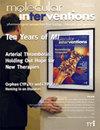The Un-Human Beings
引用次数: 0
Abstract
This essay traces the political and legal discourses around migrants and refugees in two distinct conditions: the postcolonial and the postsocialist of India and Poland, respectively. The two countries have recently turned to nationalist right-wing politics with an increasingly hostile focus on foreign Others, particularly Muslims. In the context of increased global surveillance and criminalization of Muslims, we show how the bodies of Muslim migrants are dehumanized and constructed as threats, denying their humanity in the process. We do this through the two cases of Ayub and Ameer, two Muslim men navigating their “illegality” in two different contexts in India and Poland. This essay is a contribution to the literature on postcolonial and postsocialist theories and critical debates about the possibilities of dialogue between postsocialist and postcolonial geographies. The examples we use demonstrate that the postcolonial and postsocialist nation-states respond to global phenomena such as migration and Islamophobia in ways that have discernible traces of their histories and are constituted distinctively from the western metropoles.非人类
本文分别在印度和波兰的后殖民主义和后社会主义两种不同的条件下,追溯了围绕移民和难民的政治和法律话语。这两个国家最近都转向了民族主义右翼政治,对外国人,尤其是穆斯林,越来越充满敌意。在全球日益加强对穆斯林的监视和刑事定罪的背景下,我们展示了穆斯林移民的尸体是如何被非人化并被构建为威胁的,在这个过程中否认了他们的人性。我们通过Ayub和Ameer的两个案例来说明这一点,这两个穆斯林男子在印度和波兰的两个不同背景下进行“非法行为”。这篇文章是对后殖民和后社会主义理论以及关于后社会主义和后殖民地理学之间对话可能性的批判性辩论的文献的贡献。我们使用的例子表明,后殖民和后社会主义民族国家对移民和伊斯兰恐惧症等全球现象的反应方式具有可识别的历史痕迹,并且与西方大都市截然不同。
本文章由计算机程序翻译,如有差异,请以英文原文为准。
求助全文
约1分钟内获得全文
求助全文

 求助内容:
求助内容: 应助结果提醒方式:
应助结果提醒方式:


